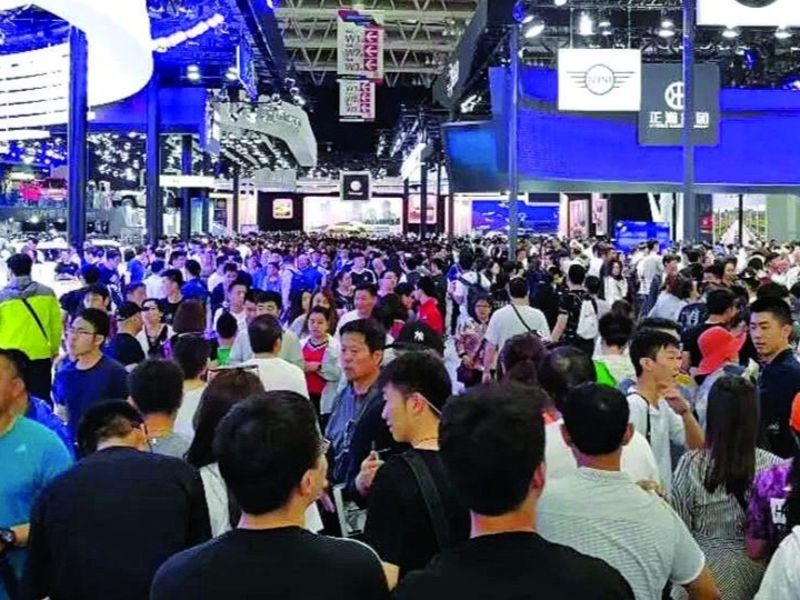
SHANGHAI — Delayed from late April, the Beijing auto show is set to begin on Sept. 26, making it the sole survivor, so far, of all the major international auto exhibitions canceled this year because of the coronavirus pandemic.
Whether anyone attends is another matter.
The pandemic has remained largely contained inside China since mid-March, and no new domestic infections had been reported for 18 consecutive days as of Wednesday, Sept. 2.
But there is no way for the Beijing show to escape its impact.
Because of the pandemic and travel restrictions China has imposed, most international automakers have chosen not to send executives to the show, according to a survey of companies by Automotive News.
Among the companies to pass on attending are China’s two largest players, Volkswagen Group and General Motors. Toyota Motor Corp., Honda Motor Co., Nissan Motor Co., Ford Motor Co. and PSA Group also do not plan to attend.
Missing, too, will be Germany’s three big luxury brands — Audi, BMW and Mercedes-Benz — even though China is by far the largest market for each of them.
Only a few global automakers, including Hyundai Motor Co. and Mazda Motor Corp., said last week that they are still finalizing plans and remain undecided.
As September started, only one international brand intended to arrange for its senior executives to fly to China for the show: Polestar, the electrified performance-vehicle brand jointly owned by Volvo Car Corp. and its Chinese parent Zhejiang Geely Holding Group. Polestar CEO Thomas Ingenlath will participate in person, according to the company.
But parent company Volvo confirmed to Automotive News that it will not send anyone from outside China to the show.
One reason companies say they are choosing not to travel into Beijing is China’s strict quarantine requirements.
“City of Beijing is currently requiring two-week quarantine for people coming from overseas,” Toyota said in an email reply to a query from Automotive News.
Toyota nonetheless will hold court at the show with a media press conference. But the speaker will be an executive from Toyota’s Beijing-based China subsidiary, Toyota Motor China Investment, not someone from its headquarters in Japan, the automaker added.
To prevent new virus imports, all Chinese cities have imposed the same requirement as Beijing for overseas travelers — a 14-day quarantine in a location designated by local governments.
Aside from the quarantine rule, there also are increased difficulties in obtaining visa approval to enter China, and a more limited number of available international flights since the pandemic, according to global automakers contacted by Automotive News.
Beyond the travel challenges, automakers have yet to disclose what products they will display at the show. But initial information indicates that, because of increased efforts to cut costs around the industry and greater difficulty in shipping vehicles into China because of the pandemic, there will be fewer global model premieres than at previous auto shows in Beijing and Shanghai.
Those shows have emerged as critical showcases for new models in recent years.
At the 2019 Shanghai auto show, Toyota debuted the battery version of the C-HR crossover for the Toyota brand and Lexus’ first EV product, the UX 300e. Nissan premiered the 14th generation of the Sylphy sedan.
At the 2018 Beijing auto show, the plug-in variants of the Toyota Corolla and Levin sedans made their global debut, along with the all-new Lexus ES sedan. Nissan unveiled the battery version of the Sylphy.
But for this month’s Beijing show, the two Japanese auto giants say they are not planning any global premieres.
Hans Greimel, Douglas A. Bolduc and Christiaan Hetzner contributed to this report.